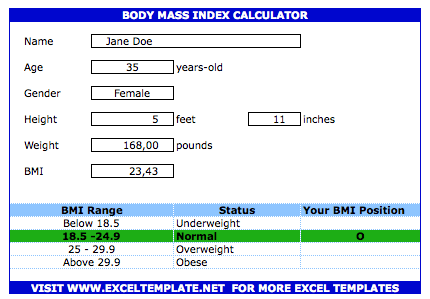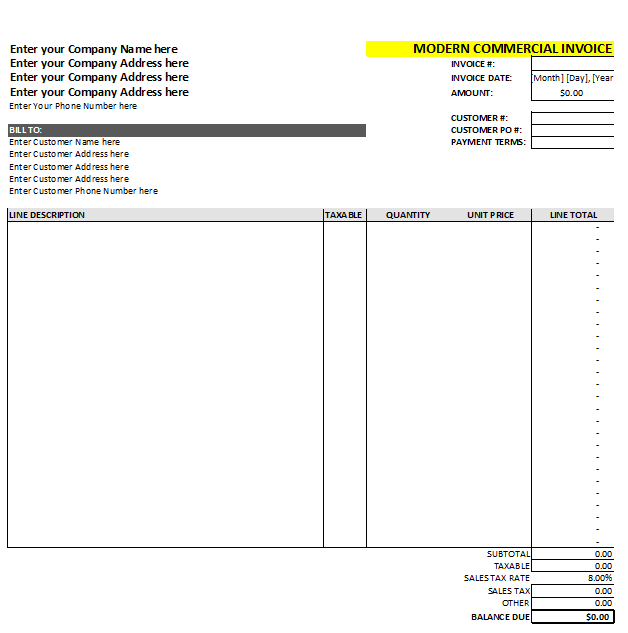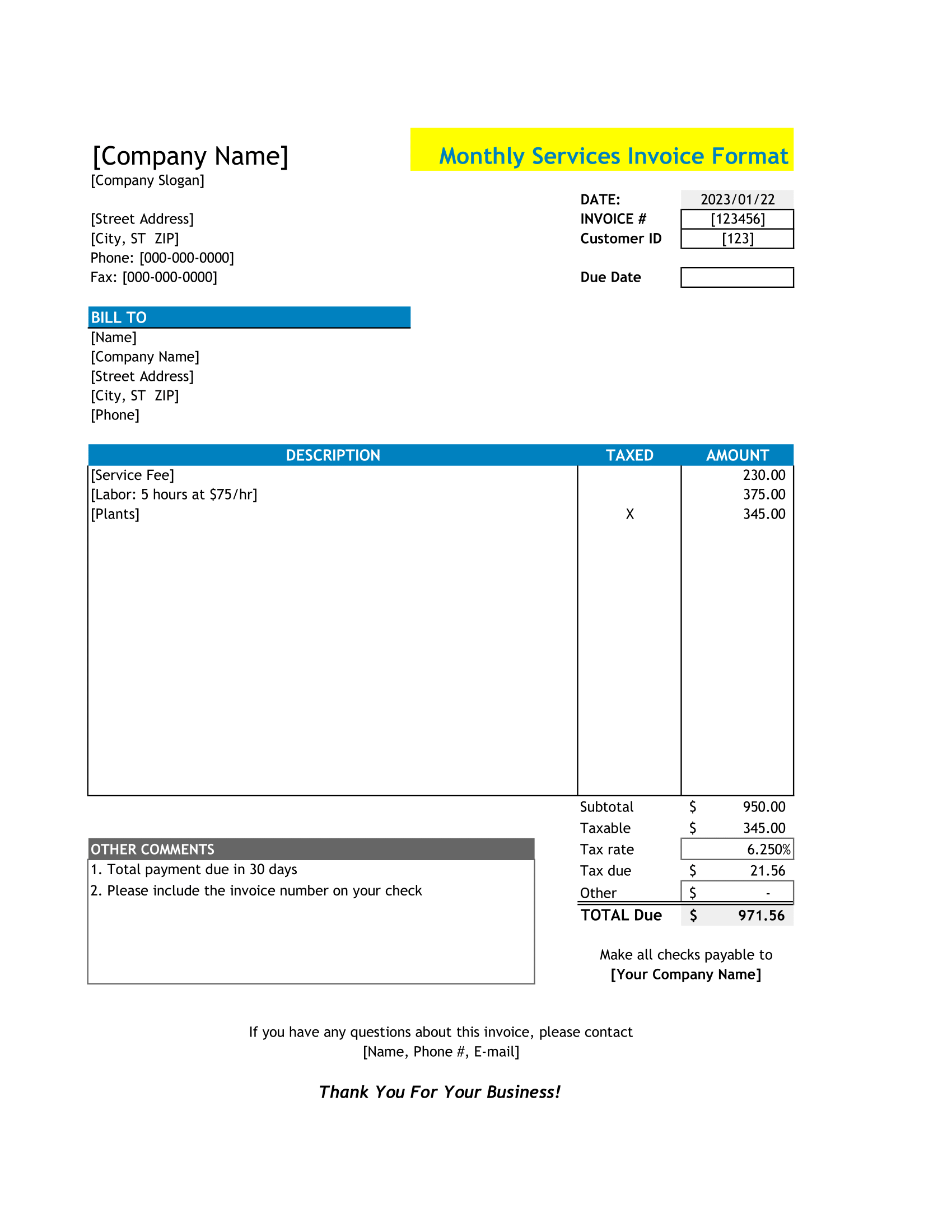There is nothing special in this template, since you can find many excel spreadsheets for this calculator. The formula itself is available in many sites. So, why I make Simple BMI calculator? The main reason because I need it as my own excel template so that I can use or modify it without any license concern.
Simple BMI Formula
The Body Mass Index(BMI) formula was mainly developed by Belgium statistician Adolphe Quelet(1796-1874), and was known as the Quetelet Index where definition of Body mass index (BMI) is a measure of body fat based on the height and weight that applies to both adult men and women as defined in National Hearth Lung and Blood Institute in USA.
Simple Body Mass Index Formula
So, Body mass index calculation is very straightforward. Therefore, Calculating body mass index requires only two measurements, height & weight, with formula as follows :
– BMI (kg/m2) = weight in kilograms / height in meters x meters (metric)
– BMI (kg/m2) = (weight in pounds x 703) / height in inches x inches (imperial)
And the result from this calculation will be categorized as follows :
- Underweight = <18.5
- Normal weight = 18.5-24.9
- Overweight = 25-29.9
- Obesity = BMI of 30 or greater
You can change between the imperial and metric calculation by using the dropdown list in height and weight rows inside the template. Thus, This template only consist a single worksheet so you can see the results directly.
BMI Chart Women Calculator
Your healthcare provider might determine the possible reasons for underweight and recommend you support or treatment. Maintaining a weight in the healthy BMI range is one way to support overall health as you age.
Adult BMI Calculator
| BMI | Weight Status |
|---|---|
| Below 18.5 | Underweight |
| 18.5—24.9 | Healthy Weight |
| 25.0—29.9 | Overweight |
| 30.0 and Above | Obesity |
Is Body Mass Index
Your BMI, or Body Mass Index, is a measure of your weight compared to your height. Accurate assessments of obesity are very important, as being overweight or obese significantly increases your risk of a variety of medical conditions including type 2 diabetes, heart disease and cancer. As levels of overweight or obesity increase, the spotlight has fallen on BMI and its shortcomings as a measure of ideal weight for individuals, rather than whole populations of people where ‘averages’ apply.







